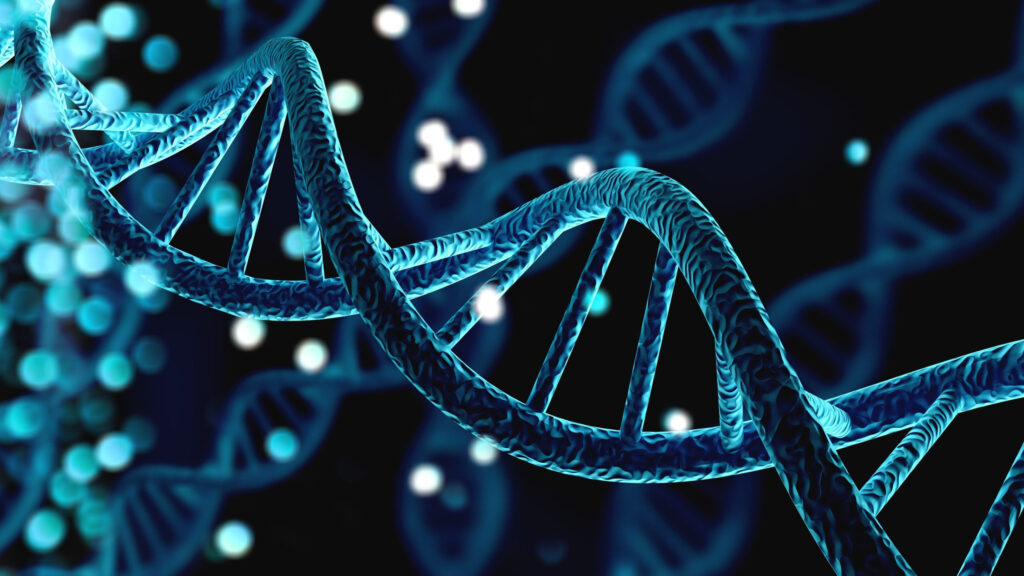Understand all there is to know about genetic testing with our informative guide to DNA diagnosis.
What is DNA diagnosis?
DNA diagnosis, or genetic testing, is a form of screening that can identify changes or mutations in an individual’s gene that may in turn cause a rare disease or genetic syndrome.
DNA, or deoxyribonucleic acid, is a molecule found within all of the body’s genes. DNA contains instructions for each of our cells to do what it is they need to do, in order to help our body develop, live and grow. DNA carries inherited information from both parents and affects many parts of the body, from how vital organs work, to physical features such as hair color and height.
Within DNA diagnosis, genome sequencing can make sense of DNA taken from the body. This identifies an individual’s unique genome and interprets the genetic information that may affect a person’s health, and that of any children they may have.
Genetic Counseling – an important part of DNA diagnosis
Genetic testing should not be undertaken without first consulting with a genetic counselor. Genetic counselors can explain the different types of DNA diagnosis options, what each entails, and what each can identify or explain.
Genetic counseling can help individuals choose the right type of genetic testing for their symptoms or potential risk factors. They can also help emotionally prepare an individual and their family for the possible results of this testing.
DNA diagnosis can be a complicated process, for those who are new to it. It can also be a long, and challenging journey, and genetic counseling provides important information, knowledge, and support along the way. It can also help speed up and improve the accuracy of a diagnosis.
When is DNA diagnosis recommended?
Genetic testing is usually recommended in the following situations or circumstances:
Before pregnancy:
Parents-to-be, regardless of a family history of rare disease, may undergo carrier DNA diagnosis to understand the potential risks to their future children. This form of testing involves screening individuals for gene mutations, that might make them carriers but not necessarily affected by a genetic syndrome. However if passed on to a future child, their child may develop the condition or syndrome.
During pregnancy:
All parents-to-be are often recommended to undergo some form of DNA diagnosis during pregnancy. This might take the form of standardized testing, for example, non-invasive down screening during the first trimester, or any one of many new non-invasive prenatal testing options.
During pregnancy, if there is a known risk factor or cause for concern:
If parents-to-be have someone in their family with a history of a rare disease, genetic testing, of the unborn child, may be recommended during pregnancy. More invasive, and more accurate testing options, are also usually recommended for older Mothers, including amniocentesis and chorionic villus sampling. This is because advanced maternal age is considered to be a risk for chromosomal abnormalities, for example. Parents who have already been identified as carriers for a gene mutation or rare syndrome would also be recommended for screening of their developing baby.
If there is a family history of a rare disease or gene mutation:
Anyone with such a history, regardless of whether they plan to have a family of their own or not, should undergo some form of DNA diagnosis and testing. This would be with the intent of better understanding their genetic health and risk of potentially developing a rare disease.
If someone is showing symptoms:
Symptoms that have no other explainable cause, or which are possible symptoms of a rare disease. Some syndromes present with very specific facial features, and when identified together, this can prompt a recommendation for genetic testing.
DNA diagnosis – In conclusion
Genetic testing is an invaluable part of reaching a diagnosis for a genetic syndrome. But it also plays a role in understanding an individual’s genetic health, their potential risk for developing a rare disease, or the potential for their future children to inherit a condition or gene mutation. It can help make sense of symptoms, and place them within the context of a rare disease diagnosis. Genetic testing can also provide important answers to families stranded or stuck within a diagnostic odyssey.
Improving the accuracy of this testing, while increasing accessibility to it, is crucial in ensuring rare disease patients and their families access essential care and support options. Improved accessibility allows rare disease patients more control over their diagnosis and continued care. It creates options and choices that empower rare disease patients. This includes a need for continued and greater research into the causes and symptoms of rare diseases, and ensuring everyone has access to genetic counseling and testing services.



